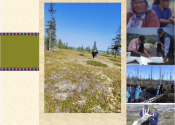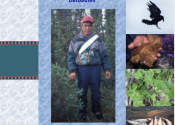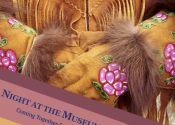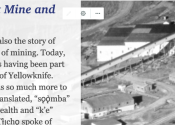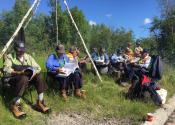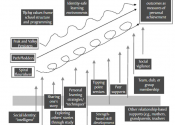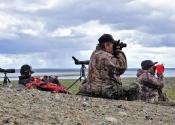Our research agenda in the Tłı̨chǫ region has historically been broad in scope covering a variety of research interests covering the environment, health and wellness, and Tłı̨chǫ language, culture and way of life. The number of projects we are able to support is steadily increasing as we build the capacity to move beyond only being able to support the research interests of other organizations and individuals, to identifying, planning and implementing the research that is of most value to people in our communities and to the Tłı̨chǫ Government.
The following descriptions are intended as a compendium of current and past research projects over the past few years undertaken by the Tłı̨chǫ Research & Training Institute and its partners, the Tłı̨chǫ Government, and its predecessor, the Dogrib Treaty 11 Council (1992-2005), and the Tłı̨chǫ Community Services Agency and its predecessors, the Dogrib Community Services Agency (1997-2005) and the Dogrib Divisional Board of Education (1989-1997):



